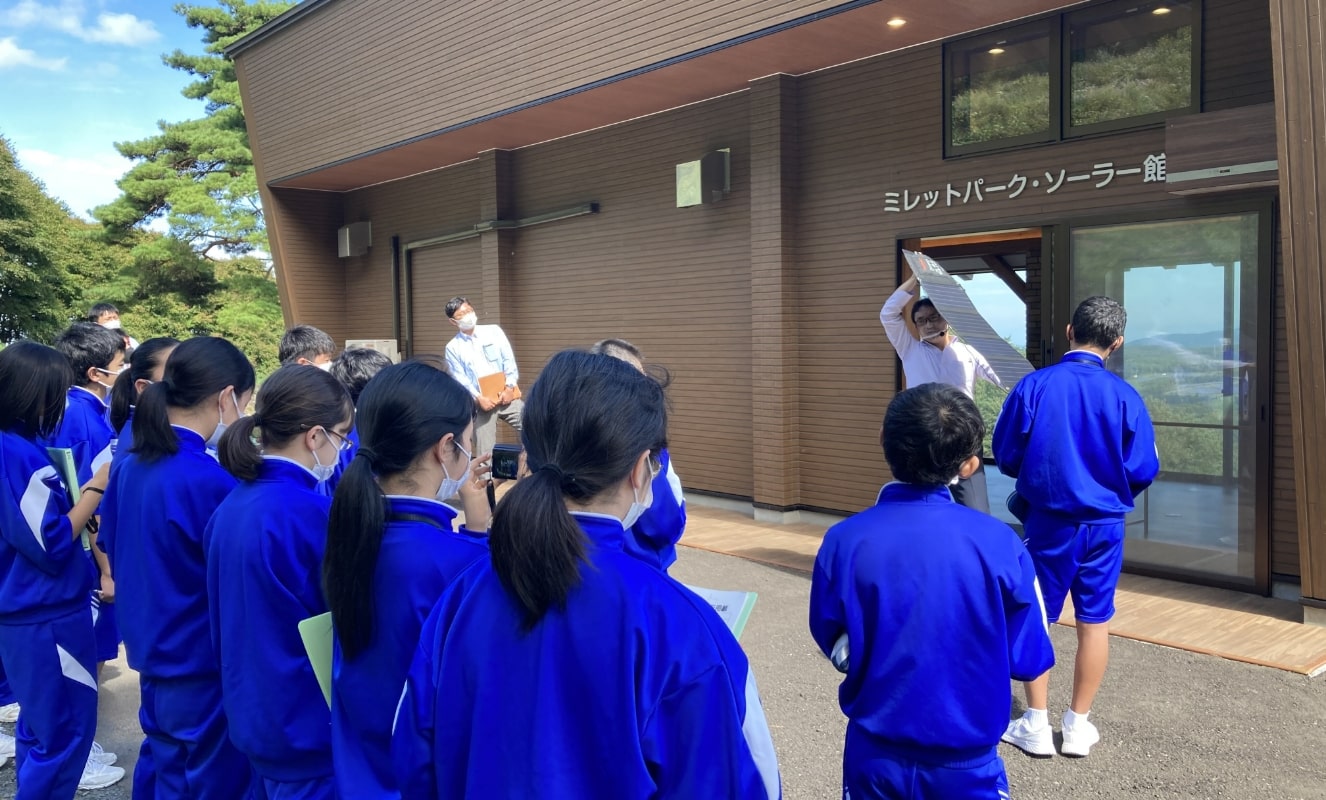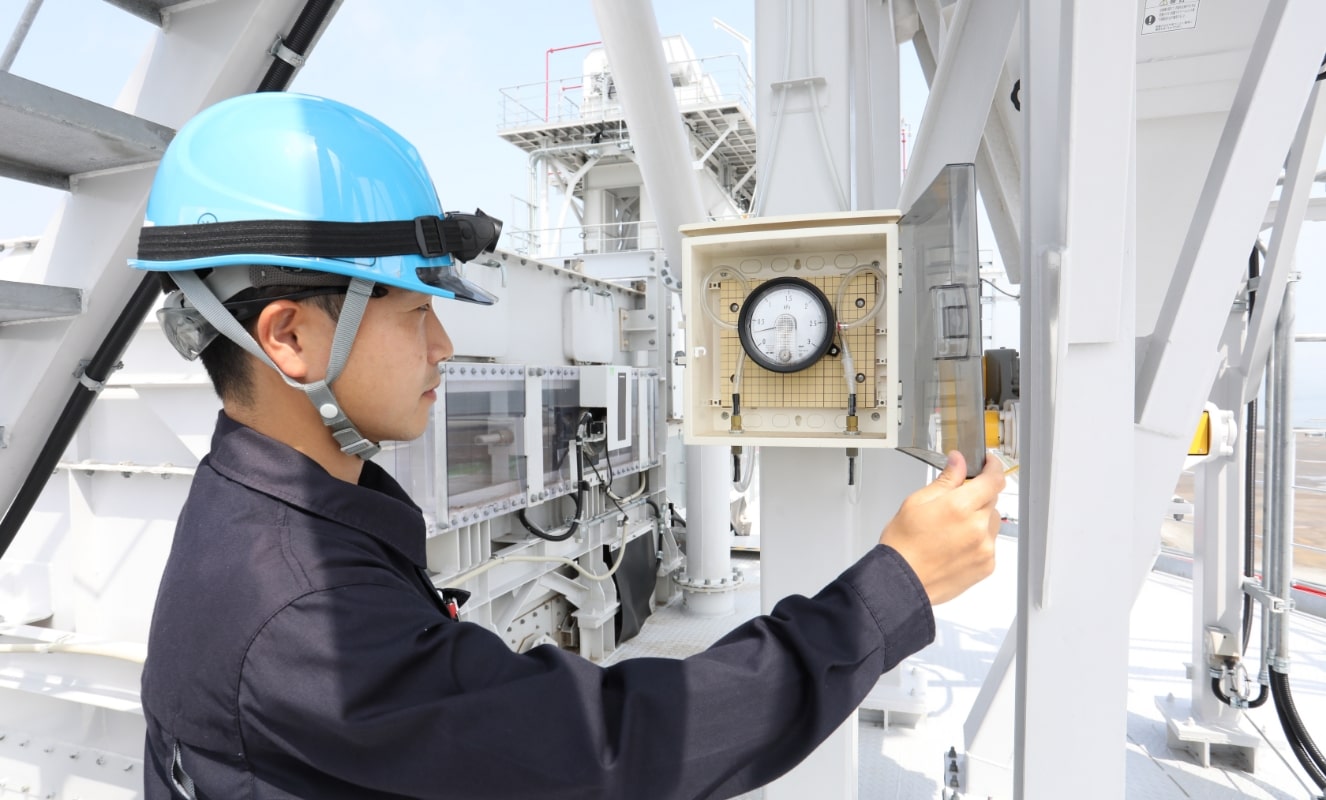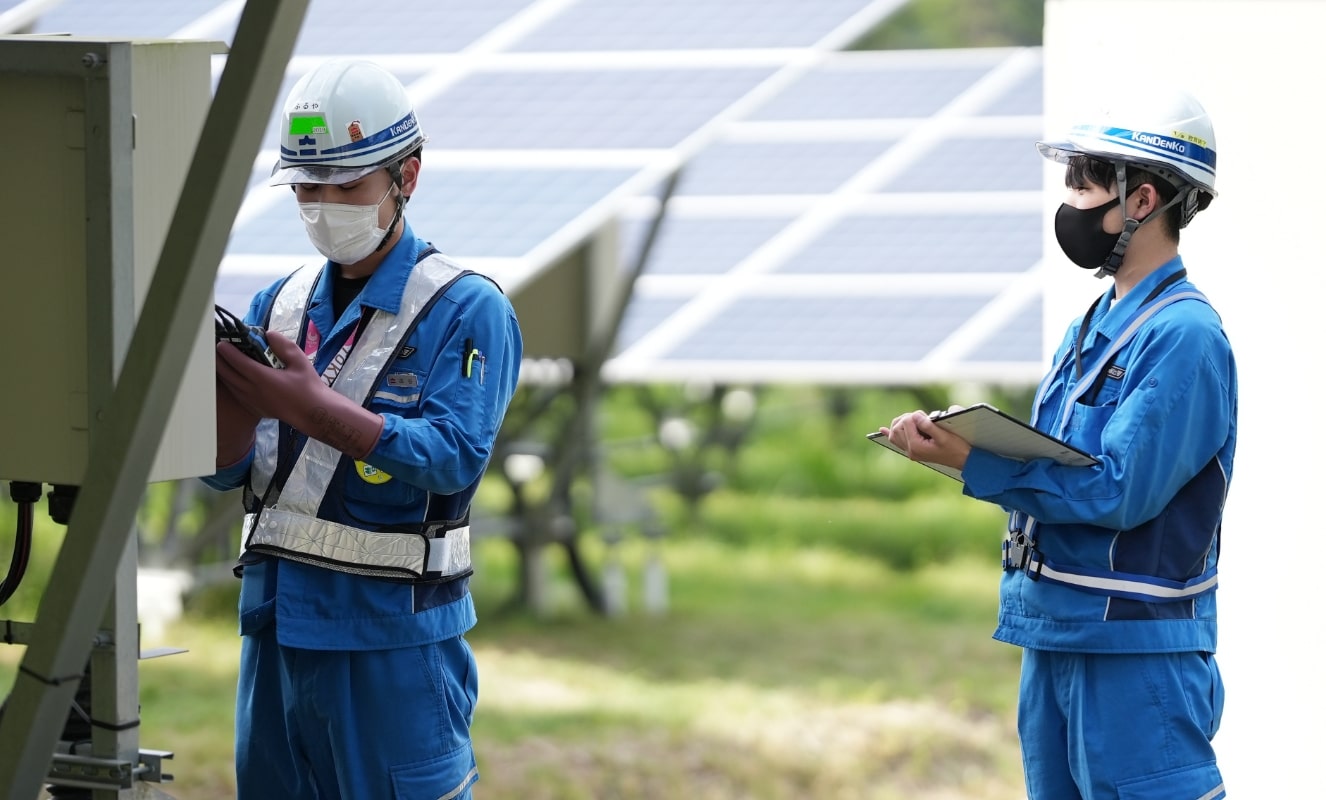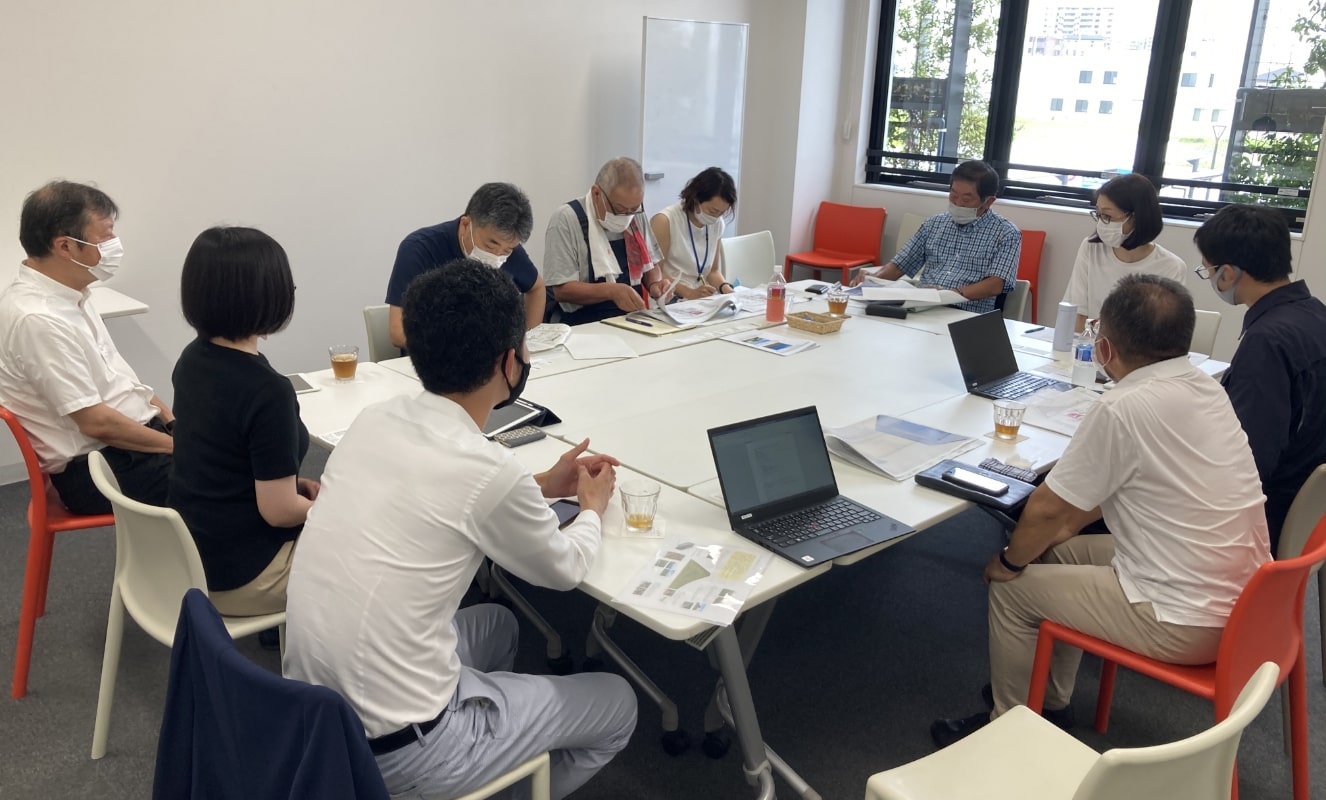Renewable energy power plants generate electricity from the blessings of nature such as the sun, forests, wind, water, and geothermal heat in the areas in which they are located.
RENOVA recognizes that it has been entrusted with such important resources in the areas in which it operates, and aims to coexist and prosper together with local communities in the vicinity of its power plants, and to deliver new value to those communities.
As a company responsible for social infrastructure, we believe that the stable supply of renewable energy is a natural responsibility, and are implementing initiatives to ensure the stable operation of power generation facilities.
Social Initiatives
Creating Value in Partnership with Local Communities and Respecting their Heritage and Cultures
-
Dialogue with Local Communities
RENOVA has been working to dispel the concerns of local residents about power plant projects from the early stages of development, by holding briefings based on its Environmental Impact Assessments, and by explaining its business plan through additional voluntary briefings.
At the Ishinomaki Hibarino Biomass Power Plant and Sendai Gamo Biomass Power Plant projects, during the development and design stages, fishermen mainly voiced concerns about the large amount of warm wastewater that would be generated when cooling steam discharged from the turbines.
RENOVA accepted these opinions, conducted its own fishing impact study, and switched to an air-cooled cooling system that emits less hot water into the ocean.
Even after the construction stages of our power plants, we have continued to communicate with local people.
For example, at the Tokushima Tsuda Biomass Power Plant, we are working to promote understanding of the project by reporting on the progress of construction work and providing information on construction sites to members of the local residents’ association.
At Karumai West and East Solar, we have cooperated in the integrated studies of local junior high schools to deepen children’s understanding of the history, culture and nature, etc., of the region.
Cooperation for integrated studies at Karumai Junior High School
-
Stable and Robust Operation of Power Plants
Under our responsibility to support social infrastructure as a power generation company, stable and robust operation of power plants is indispensable for the stable supply of electric power.
HSE Policy
We believe that it is important to enhance our occupational safety management system for stable operation of power plants, and have established a safety and health management system at each power plant, placing the highest priority on complying with laws and regulations relating to occupational health and safety and creating and maintaining safe and healthy working environments.
By formulating an HSE (Health, Safety and Environment) policy, we will foster and instill a culture of placing the highest priority on safety within the company. Even if an accident occurs, we will minimize the impact and always implement the necessary measures to ensure safety.
Facility Inspection

Facility Inspection
-
Local Communities
RENOVA has made it its business philosophy to build relationships of coexistence and prosperity with the local communities in the vicinity of its power plants, and will make its best efforts to contribute to the development of local activities, history and culture.
For example, at the Akita Biomass Power Plant, approximately 70% of biomass fuel is procured in Akita Prefecture, contributing to the revitalization of the forestry industry in the prefecture and the creation of employment opportunities in connection with this.
Domestic timber is also utilized at the Kanda Biomass Power Plant in Fukuoka Prefecture, and wood chips from northern Kyushu are used as part of the fuel.
In addition, an exhibition room called "Gamo Nakano Kyoshu-kan" has been opened on the power plant site. This was created as a result of discussions with local residents to pass down the pre-disaster history of the area and to create opportunities for environmental learning.
At Tokushima Tsuda Biomass Power Plant, in response to the requests of local residents, we donated equipment to the local community center.
With the aim of contributing to environmental and forestry-related education in the future originating from the biomass power plant, we are working with local companies to construct facilities that can be used for environmental and forestry education and to create educational content.
Dialogue with local people about the contents of an exhibition
